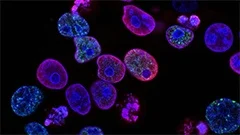Introduction
General Ecology is a fundamental area of biology that deals with the interrelationships among organisms and their physical environment. This discipline aims to understand the distribution, abundance, and interactions of species in communities and ecosystems as well as the processes that influence these patterns. In this course, we will delve into the essential concepts of ecology to develop a comprehensive understanding of how ecosystems function and change over time.
Historical Foundations of Ecology
We begin by exploring the historical foundations of ecology and tracing its evolution from natural history to modern science. We will discuss pioneering ecologists such as Alexander von Humboldt, Charles Darwin, and Rachel Carson who have contributed significantly to the development of ecological thought.
Principles of Ecology
The core principles of ecology involve understanding the key processes that shape ecosystems, including energy flow, matter cycling, biotic interactions, and population dynamics. We will examine these concepts in detail, explaining their interconnectedness and relevance to ecological systems.
Energy Flow
Energy is essential for life on Earth, and understanding how it flows through ecosystems provides insights into the structure and function of these communities. We will explore photosynthesis, respiration, and trophic levels as critical components of energy flow in ecosystems.
Matter Cycling
The recycling of nutrients within ecosystems is essential for maintaining productivity and biodiversity. We will discuss the nitrogen and carbon cycles as fundamental examples of matter cycling processes that underpin ecosystem functioning.
Biotic Interactions
Organisms interact with one another and their environment in various ways, such as competition, predation, mutualism, and parasitism. These interactions play a crucial role in shaping communities and ecosystems. We will examine the mechanisms underlying these biotic interactions and explore how they can lead to coexistence or exclusion of species within ecosystems.
Population Dynamics
The dynamics of populations are influenced by factors such as birth rates, death rates, immigration, and emigration. We will explore models used to describe population growth and explain how these models can help predict the long-term stability or collapse of populations in response to environmental changes.
Ecosystems and Biodiversity
Ecosystems encompass diverse communities of organisms interacting with their environment, and understanding biodiversity is crucial for predicting ecosystem function and resilience. We will examine the various levels of biological organization, from genes to landscapes, and discuss how patterns of diversity contribute to ecosystem stability and services.
Biodiversity Indices
To quantify biodiversity, we use different indices such as species richness, evenness, and diversity. We will explain these concepts and demonstrate their importance in describing the complexity of ecosystems and predicting their response to environmental change.
Ecosystem Services
Ecosystems provide a wide range of benefits to human societies, including food, water, pollination, climate regulation, and cultural values. We will discuss the concept of ecosystem services and explore how human activities can impact these services positively or negatively.
Ecological Impacts of Human Activities
Human activities have profound effects on ecological systems, from habitat destruction to pollution and climate change. We will examine these impacts in detail and discuss strategies for mitigating their negative consequences while promoting sustainable use of ecosystem resources.
Habitat Alteration and Fragmentation
The transformation and fragmentation of habitats can have detrimental effects on species diversity, abundance, and distribution. We will explore the mechanisms underlying these impacts and discuss conservation strategies aimed at minimizing habitat loss and fragmentation.
Pollution
Pollutants released into ecosystems can disrupt the functioning of ecological systems and threaten biodiversity. We will examine different types of pollution, such as air, water, soil, and noise pollution, and discuss their effects on ecosystem health and human well-being.
Climate Change
Climate change represents one of the most pressing threats to ecosystems and biodiversity worldwide. We will discuss the causes, consequences, and potential solutions to climate change, with a focus on its impacts on ecological systems and strategies for promoting resilience in the face of these challenges.
Conservation and Management Strategies
Conserving and managing ecosystems is essential for ensuring the long-term survival of species and maintaining the services they provide to human societies. We will examine various approaches to conservation and management, including protected areas, habitat restoration, and sustainable use of natural resources.
Protected Areas
Protected areas are designated areas where ecological integrity is maintained or restored for the benefit of biodiversity and ecosystem services. We will discuss the different types of protected areas, their benefits, and challenges in implementing effective conservation strategies within these zones.
Habitat Restoration
Habitat restoration involves restoring degraded or lost habitats to promote the recovery of species and ecosystems. We will explore various techniques used for habitat restoration and examine case studies demonstrating successful outcomes.
Sustainable Use of Natural Resources
Sustainable use of natural resources is essential for balancing ecological integrity with human needs. We will discuss strategies for promoting sustainable resource use, including eco-certification, community-based conservation, and market-based instruments.
Conclusion
Understanding the principles of general ecology equips us with the knowledge necessary to address the pressing challenges facing our planet's ecosystems. By developing a comprehensive understanding of how ecosystems function, we can make informed decisions about conservation, management, and sustainability to ensure the long-term survival of species and the services they provide.
MCQ: Test your knowledge!
Do you think you know everything about this course? Don't fall into the traps, train with MCQs! eBiologie has hundreds of questions to help you master this subject.
These courses might interest you
Create a free account to receive courses, MCQs, and advice to succeed in your studies!
eBiologie offers several eBooks containing MCQ series (5 booklets available free for each subscriber).




